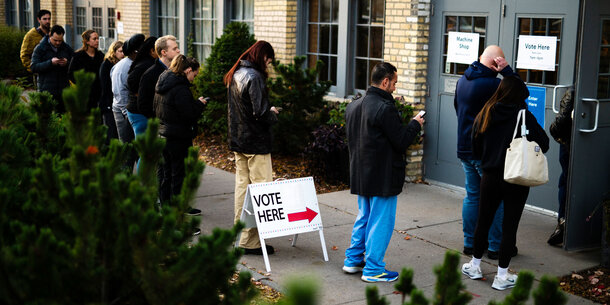Last week, the state of Alabama gave up its long-running and unfounded lawsuit to force the U.S. Census Bureau to exclude undocumented people from the population counts used to divvy up seats in the House of Representatives. The suit — which Alabama tried to push through the courts for nearly three years — ultimately couldn’t escape the gravity of law and reality. Alabama’s decision to stand down marks a significant victory for the ongoing campaign to ensure a full, equitable, and accurate 2020 Census and truly representative government nationwide.
Alabama’s lawsuit challenged the bureau’s “residency rule,” which requires it to count everyone living in the country when calculating the apportionment, including undocumented people. Alabama claimed that the rule would cause the state to lose one of its seven seats in Congress to a state with a larger population of undocumented people, since reapportionment is a zero-sum game.
From the beginning, Alabama’s case had a fundamental and fatal flaw: The apportionment base has always included all persons residing in the country irrespective of their immigration status, in keeping with the Constitution’s clear command to apportion the House based on “the whole number of persons in each state.” Federal law implementing this constitutional mandate is equally clear: All people count because all people are “persons.” Alabama pressed forward notwithstanding.
Fortunately, broader circumstances intervened to drive the case to ground. Alabama didn’t explain how it concluded its case was done, but a quick survey of recent developments shed light on its likely thinking.
The most obvious factor: the actual results of the 2020 Census. The bureau’s recently announced apportionment totals resulted in Alabama keeping all seven of its House seats. That development invalidated the factual theory at the core of Alabama’s case. And it took away the harm that Alabama needed to move forward in federal court. (This is what’s called a “standing” problem — plaintiffs need to be hurt by the policies they’re challenging, and Alabama clearly wasn’t hurt by the bureau’s residence rule in the way it claimed it would be.)
April’s apportionment results were the latest of a series of barriers that emerged after Alabama filed its case in 2018. First, the Supreme Court in 2019 blocked the Trump administration from putting a citizenship question on the census form. Without that information, the federal government would have struggled to develop the citizenship data necessary to carry out Alabama’s unconstitutional objective, even if the state somehow convinced the courts to upend the long-settled rule of counting everyone.
Alabama didn’t give up at that juncture, likely because the Trump administration didn’t either. In the year following the Supreme Court’s ruling, the administration announced several more data initiatives, designed to provide citizenship data that could be used to exclude undocumented people from apportionment and state-level redistricting.
These efforts foundered recently, too.
In November oral arguments considering Trump’s plan to exclude undocumented people from the apportionment, the justices suggested that such a policy wouldn’t fly.
Later, the federal government removed its support for Alabama’s exclusionary agenda. In his first day in office, President Biden restored the legal status quo of counting everyone by revoking the former administration’s orders to create new citizenship data products. And in April, the Census Bureau announced as part of a lawsuit settlement that the citizenship data it had collected under the former administration’s orders was “incomplete” and the products it wanted were “statistically unfit for use for apportionment or redistricting purposes.”
These developments together sent a clear message to Alabama and any other state considering following in its footsteps: The federal government would no longer deviate from the legal norm. And it would no longer function as a factory for unreliable citizenship data to help states violate the Constitution and other federal law.
Alabama never had a viable legal theory. By April 2021, it also had no harm and no hope for help. The state shouldn’t be applauded for finally acceding to that reality. It is, after all, still pushing forward a second, potentially damaging lawsuit to speed up the bureau’s production of redistricting data despite the challenges posed by the pandemic.
But the circumstances surrounding the apportionment lawsuit’s demise send a strong signal that the country’s basic, long-running constitutional commitments to full and fair representation will not be so easily overturned, by Alabama or any other challenger.




